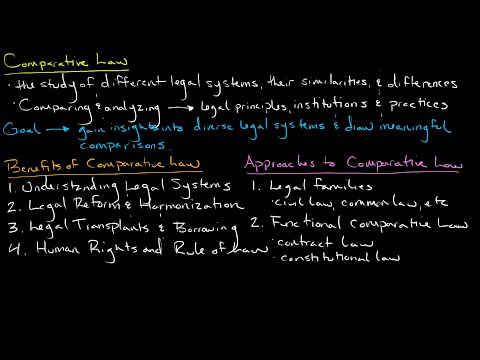
Welcome to this informative article on understanding the distinctions between UK law and legal systems across the globe. It is important to note that while this article aims to provide a comprehensive overview, it is essential to cross-reference this information with other sources or consult legal advisors for specific cases or advice. Now, let’s delve into the fascinating world of comparative analysis of legal systems!
When exploring the differences between UK law and legal systems worldwide, it is crucial to understand the varying frameworks and principles upon which these systems are built. Each country has its own unique legal system, influenced by historical, cultural, and political factors. These differences can have a significant impact on how laws are created, interpreted, and applied.
1. Common Law vs. Civil Law:
One of the most fundamental distinctions in legal systems is the division between common law and civil law. The UK adopts the common law system, which relies heavily on judicial precedent. This means that decisions made by higher courts are binding on lower courts in similar cases. In contrast, many countries, such as France and Germany, follow civil law systems, which are codified and rely on written laws and legal codes rather than court decisions.
📋 Content in this article
2. Legal Sources:
The sources of law also vary across jurisdictions. In the UK, laws are primarily derived from statutes passed by Parliament, supplemented by common law principles. By comparison, civil law systems rely more heavily on comprehensive legal codes enacted by legislatures.
3. Role of Judges:
The role of judges differs significantly between the UK and civil law jurisdictions. In the UK, judges play a crucial role in interpreting legislation and developing the common law through their decisions. This allows for flexibility and adaptability within the legal system. In civil law systems, judges typically focus more on applying existing laws rather than creating new legal principles.
4. Legal Education and Profession:
Legal education and the legal profession also exhibit variations worldwide.
Comparing the Legal Systems of the United States and the United Kingdom
Comparing the Legal Systems of the United States and the United Kingdom
When it comes to understanding the legal systems of different countries, it is important to analyze and compare the structures and principles that govern them. This article will focus on comparing the legal systems of two major common law jurisdictions: the United States and the United Kingdom. By examining their similarities and differences, we can gain a better understanding of how each system operates.
1. Origins of the Legal Systems:
2. Sources of Law:
3. Court Structure:
4. Role of Precedent:
Understanding the Distinctive Features of UK Law: A Comparative Analysis
Understanding the Distinctive Features of UK Law: A Comparative Analysis
When it comes to understanding the legal systems across the globe, it is crucial to delve into the distinctive features of UK law. The UK legal system is renowned for its rich history and influence on legal frameworks in many parts of the world. In this article, we will explore the unique aspects of UK law and compare them to legal systems in other countries.
Title: Understanding the Distinctions: A Comparative Analysis of UK Law and Legal Systems across the Globe
Introduction:
In today’s interconnected world, it is crucial for legal professionals and individuals with an interest in law to have a comprehensive understanding of the different legal systems that exist across the globe. One such important comparison is between the legal system of the United Kingdom (UK) and those of other countries. By examining these distinctions, we can gain valuable insights into the intricacies of different legal approaches, fostering a global perspective on law and justice.
Importance of Staying Current:
Staying up-to-date with the comparative analysis of UK law and legal systems across the globe is of paramount importance. The legal landscape is in a constant state of evolution, with laws and legal principles being shaped by societal, cultural, and political changes. By keeping oneself informed, individuals can navigate potential challenges more effectively, engage in global legal discussions, and adapt their strategies accordingly.
Source Verification and Cross-Referencing:
It is vital to note that while this article provides a detailed overview of the subject matter, readers must undertake further research to verify and cross-reference the content herein. The information provided should be considered as a starting point rather than an exhaustive analysis. Legal systems are complex and multifaceted, often varying within specific jurisdictions. Therefore, consulting reliable sources such as academic publications, legal databases, or seeking advice from legal professionals is highly encouraged.
Comparative Analysis of UK Law and Legal Systems:
To comprehend the distinctions between UK law and legal systems across the globe, we must first understand the foundations of the UK legal system itself. The UK follows a common law system derived from judicial precedent and case law. This differs from civil law systems prevalent in many European countries, where statutes form the primary basis for legal decisions.
Key Points to Consider:
1. Legal Education: Exploring the differences in legal education is essential to understanding how lawyers are trained and the impact it has on legal practice.
